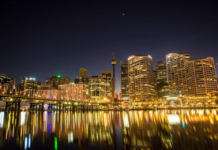Barcelona is a town with a history that like a good Catalan red wine is both rich and dark. Plundered, conquered, nearly destroyed and under siege for much of its life, it comes as no surprise that Barcelona is also a city with a particular penchant for civil rights and freedom.

Barcelona is a town with a history that like a good Catalan red wine is both rich and dark. Its foundations stretch back to at least the 15th century BC, if not earlier. Like so much of ancient Europe the Romans founded the first semblance of the town we know today as Barcelona. In the centuries that followed Barcelona was invaded by many powerful groups of people including the Visigoths, the Moors and the Muslim ruler Al Mansur. Plundered, conquered, nearly destroyed and under siege for much of its life, it comes as no surprise that Barcelona is also a city with a particular penchant for civil rights and freedom. Where the fight for liberty, and some evidence of both local and national political justice and peace, would eventually lead to Barcelona becoming one of Spain’s largest strongholds for those who believed in the idea of anarchism.
In the most basic of essences anarchism is a system of political beliefs which dictates that a society (or group of people) will be free from laws, police, governments and other forms of imposing authority. Instead of this type of governed society anarchists feel that a libertarian culture should be founded around mutual cooperation and help amongst the members of the anarchist society.
When and what exactly planted the first seeds of anarchism in the people of Spain and the city of Barcelona is hard to say. Perhaps it was a result of the industrial revolution or a way of revolting against the stark rules and ideologies of Victorian Europe, not to mention the highly uneven distribution of wealth amongst the rich and the poor of Spain at the time. By the middle of the nineteenth century a visible anarchist movement had sprung up in Spain. At the turn of the twentieth century Spain had the largest anarchist community of any European nation, with the biggest following coming from Barcelona’s industrial workers, who in 1911 formed an anarcho-syndicalist trade union called the National Confederation of Trabajo, or the “CNT”. This union was the only one that was willing to take on members who were not qualified or able to join other unions.
On the whole, the ideals of the CNT focused largely on overthrowing the ruling Capitalists of Spain. Yet almost as soon as it was founded divisions sprung up amongst members of the CNT, some of whom took to radical acts and crimes that today would be classified as acts of terrorism. A large part of what the CNT and Spanish anarchism were about was demonstrating their opposition to the way that Spanish workers – primarily those in the lower classes of society – were being treated. Strikes and demonstrations, meetings and rallies were exceedingly common ways for the anarchists to show their stances and beliefs.
Towards the end of the First World War, and in the years that immediately followed, Barcelona was home to many strikes and protests against the ever-increasing rate of joblessness and the continual slashes in many workers’ wages by factory owners. During this time the memory of a tragic uprising in 1909 which saw 6 people killed, 1, 700 charged with crimes and five executed for their alleged involvement with the uprising – including Francisco Ferrer, a well known Spanish free-thinker – was still fresh in the minds of the people of Barcelona as this is where the event had occurred.
In 1934 the CNT had some 1.5 million members and by the time the Spanish revolution began in 1936 this number had grown even larger. While it is nearly impossible to sum up the events of the Spanish Civil War that followed in a few lines, it can be defined as a conflict between the left wing parties of Spain (including anarchists, socialists, communists, and some republicans) and the right wing Nationalist party which was headed by the infamous Francisco Franco. By the end of 1939 Franco was successful in overthrowing the current Spanish Republican government and creating his own dictatorship. Thus the right-wing side had succeeded in winning the three year long civil war.
The Spanish Civil war may have officially ended, but the Second World War was just beggining and Franco’s power in Spain was to remain strong for decades to come. The reign of Franco’s government would not be shaken until the 1970’s, however by this time a great deal of the country’s left wing groups and anarchist parties had either been destroyed during the second world war, transformed into other groups or disbanded on the whole.
In the past thirty years Spain has seen continual freedom and rebirth, albeit with some setbacks, which may be a large part of why membership in groups such as the CNT has greatly declined. However, at the same time the CNT continues to exist today, and Barcelona is still considered to be Spain’s “anarchist hotspot”. While many thing both tragic and positive have come from Spain’s long history of fighting, civil unrest and anarchism, one thing is for sure – the beautiful city of Barcelona will forever be a city with an unshakeable will of its own.
Source: LeGuide


























![Le chocolatier suisse Läderach développe une histoire d’amour avec la Chine [ INTERVIEW ]](https://www.afrique-54.com/wp-content/uploads/2023/12/Johannes-Laderach-et-chocolat-e1702548585357-218x150.jpg)











